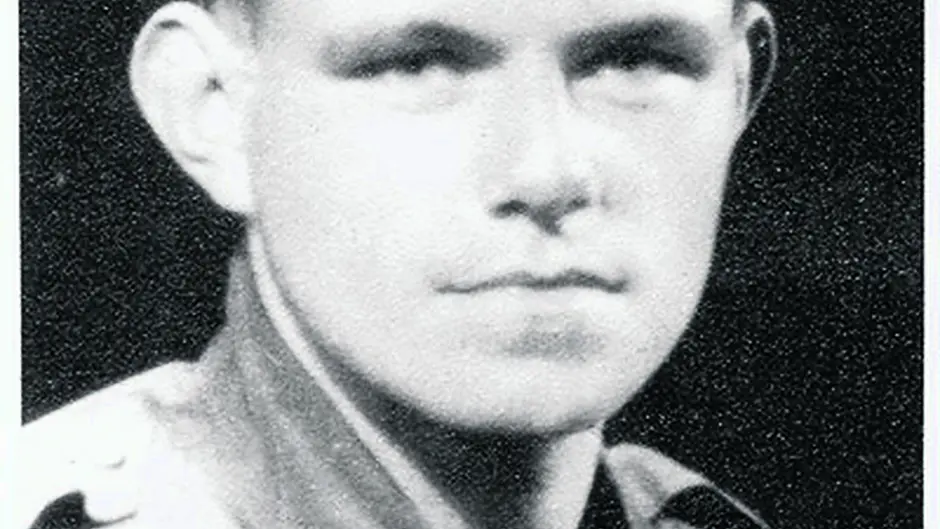Two men with strong West Cork links will be remembered at a summer school being held next week in Shandon, in honour of Cork-born union activist Mary Harris
MICHAEL O'RIORDAN
MICHAEL O'Riordan was born in 1917, at 37 Popes Quay in Cork city. He was the youngest of five children. His parents, Micheál O'Riordan of Inchinossig and Julia Creed of Illauninagh came from Ballingeary in Muskerry. Micheál was a carter at Cork docks and later opened his own grocery shop on Adelaide Street in Cork city's Middle Parish.
He attended school at the North Monastery and even though still a young teenager, Michael became politically active in the early 1930s and took part in the confrontations with the Blueshirts on the streets of Cork. He joined the IRA and supported the Republican Congress under Peadar O'Donnell and Frank Ryan, which sought to establish an Irish Socialist Republic. Later, he joined the Irish Communist Party.
The Cork city of Michael O'Riordan in the mid-thirties was in ferment, there was an atmosphere of intimidation and hysteria fuelled by reports of attacks on the Catholic Church in Spain by Republican forces. In 1936, 40,000 people attended an Irish Christian Front meeting in the city. This Front was a reincarnation of the old Blueshirts organisation, although with wider appeal.Â
Gardai had to baton charge Christian Front demonstrators outside the Bridewell later that night, as they had attacked a number of people, who they claimed were communists.
In was in this hostile political and social climate that O'Riordan bravely volunteered to go to Spain in April 1938 to join up with the International Brigades. He became one of about 250 Irishmen who fought on the Republican side, around 15 of them were Cork born. Some 600 other Irishmen went to Spain under Eoin O'Duffy to support Franco's army with over 50 from Cork city and county. This “Irish Brigade†saw little action.
Having joined the XVth International Brigade, O'Riordan saw action immediately and fought in several of the engagements. He was wounded by shrapnel on the Ebro front on August 1st 1938, having earlier carried the Catalan flag across the river Ebro in what was to prove the final Republican attack mounted by the International Brigades. Following the demobilisation of the International Brigades, O'Riordan arrived back in Dublin on December 10th 1938.Â
Later in 1939 he began training IRA units in Cork and was arrested and imprisoned in the Curragh Internment Camp from February 1940 to August 1943. He learned Irish under MairtÃn O Cadhain at the language classes and was one of dozens of IRA men from Cork interned in the camp.Â
On his release he became very active in labour politics and on June 14th 1946 he stood as a Cork Socialist candidate in the bye-election in Cork and polled a very creditable 3184 votes.  Michael and Kay Keohane from Clonakilty were married in November 1946. They had three children. Both Kay and her sister, Máire Keohane-Sheehan were and remained committed activists in the labour and trade union movement.
He worked as a bus conductor in Cork and later in Dublin and remained active all his life in the ITGWU. Michael campaigned on many social issues such as housing, he stood in a further five general elections in Dublin and served as General Secretary of the Irish Communist Party from 1970 to 1983. Later he served as Chairman of the Party until 1988. He also campaigned on behalf of the Birmingham Six.
Michael O'Riordan died on May 18th 2006, aged 88.Â
FEARGUS O'CONNOR
BORN in July 1796 at Connorville, close to Ballineen, Feargus O'Connor was the son of Roger O'Connor and Wilhelmina Bowen. Both his father and more famous uncle, Arthur (a barrister, former MP and High Sheriff of Cork) were arrested in 1798 for activities connected to the United Irishmen. Arthur was exiled to France, where Bonaparte welcomed him as an official representative of the Irish people. Roger's family was also dispersed for some time as a result of his ongoing brushes with the law.
After some teenage adventures in England and Ireland, Feargus acquired Fort Robert, Dromidiclogh near Ballineen from his uncle Robert Connor in 1820 and worked the attached farm alongside over 100 of his tenants. At this time, rural areas of County Cork were hotbeds of Whiteboy actions led by the infamous and mysterious Captain Rock and O'Connor may have become mixed up in these activities. He had also addressed his first public meeting at the original Catholic Church in Enniskeane but due to the treasonous nature of his comments, he disappeared to England in 1822, where he later qualified as a barrister.Â
Returning to Cork he defended many ordinary people in the courts at the time. However, his experiences led him to become angry at the lack of civil rights and more active in politics. He did not support Daniel O'Connell's Catholic Emancipation campaign, contending that it was limited emancipation and O'Connell was ‘the only Irishman to have benefitted.'
He was more interested in the Repeal of the Union movement and his brilliant oratory skills helped him to sway huge crowds at public meetings. He addressed a crowd of some 50,000 people in Dunmanway in 1832, while also holding a large campaign dinner for 500 in Enniskeane village.
Large in stature, fiery and red haired, self-confident, charming, defiant and passionate, he engaged huge crowds and was a natural leader. Occasionally these meetings could be rather robust affairs and O'Connor became involved in many altercations. He was described by his friend and neighbour William J O'Neill Daunt as being ‘indefatigable in agitation'.Â
He surprised all when he was elected MP for Co Cork in 1832. His victory sparked mass evictions of hundreds of tenants along the Bandon Valley by Lord Bandon. The landlords never forgave him and those evicted never forgot, either. Yet he continued to engineer electoral victories in a corrupt system by somewhat pragmatic methods in many Cork towns against a backdrop of increasing anti tithe violence.Â
In the House of Commons, O'Connor was very isolated and gradually split from Daniel O'Connell accusing him of selling out the Irish people on Repeal. Re-elected in January 1835 as MP for Cork, he was soon disqualified from the House of Commons in June when a Select Committee found he had not enough property or income to qualify in the first place.Â
O'Connor helped found the Great Radical Association, which united many radicals and agitators and which sought universal suffrage (for men), voting by ballot and the removal of property qualifications for MPs. He possessed ferocious energy and spoke at huge meetings in support of working peoples' rights and is regarded by many as one of the founders of Chartism based on the later People's Charter which also sought the earlier principles espoused by O'Connor. Feargus became the ‘Lion of Freedom', adored by countless thousands, yet remaining a very divisive figure to others.
Eventually worn out by years of campaigning, wounded by arguments within the movement, lack of finances and the ongoing efforts of the Establishment to be rid of him, O'Connor experienced poor health and mental difficulties, he was eventually sent for treatment to an asylum where he remained for several years. He died at his sister's house in Notting Hill on August 30th 1855.Â
Today, Connorville and the later Carrigmore House lies in ruins alongside the present day Carbery Milk Products factory at Ballineen. Cattle graze beneath the walls of Feargus's old home Fort Robert (built in 1787) which is nearby. Very little remains of the old church at Derrigran, Enniskeane where he made his first speech, and today a parochial house stands on the site. Â
Michael's son, Manus O'Riordan, will give a talk Remembering Michael O'Riordan – A Neighbour's Child at 3.30pm in the Maldron Hotel, Shandon, on Friday August 4th at the Spirit of Mother Jones summer school.Â
Cllr Warren Davies, a Labour councillor in East Sussex will speak on Feargus O'Connor – The Corkman behind a British Revolution on Saturday 5th August at 2.30pm at the Maldron Hotel.
•The Mother Jones festival runs from Tuesday August 1st to Saturday August 5th. See www.motherjonescork.com.








